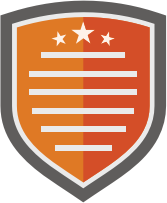I was able to "teach myself" Ruby on Rails in under a year for free. It took me about 11 months to go from no knowledge of Ruby syntax or the Rails architecture to launching a fully-functional Rails-based web app (the web app you’re looking at right now). The words "teach myself" are in quotes because I didn't really teach myself anything. I was taught by a ton of awesome people via the free content they shared on the internet. So the uniquely modern situation in which I find myself is this: I have achieved proficiency in a subject without ever meeting any of my teachers or connecting with any of my fellow students.
The Three Pillars of Traditional Schooling:
There are, of course, tons of options out there already for folks who want more learning community: we can find local meetups to attend, we can ask questions on various online forums, we can join groups of Facebook or LinkedIn. I've explored each of these options and have found that none have quite scratched the itch for me. But in my work with Open Badges and social learning I think I might have have come upon a better way.
What’s the point of sharing learning stories?
This is not about creating yet another Rails tutorial. This is about building a community of humans that serves as glue, piecing all the available learning content together into a complete learning experience. This is about creating a learning community which begins with content then adds peers and guidance -- something more like a real school.
The Problems with Learning in a Bubble
Part of me absolutely loved learning without having to make much direct social contact. The anti-social, heads-down coder in me values efficiency and avoiding unnecessary complications -- like human contact and dealing with the opinions of others. But the bigger part of me feels like I missed out on something by going it alone.The Three Pillars of Traditional Schooling:
- Learning Content - Textbooks, instructions, exercises, videos and other forms of educational media
- Community of Peers - Working with other learners and forging social connections with similarly interested people
- Expert Guidance - Working directly with subject-matter experts and receiving personalized guidance
There are, of course, tons of options out there already for folks who want more learning community: we can find local meetups to attend, we can ask questions on various online forums, we can join groups of Facebook or LinkedIn. I've explored each of these options and have found that none have quite scratched the itch for me. But in my work with Open Badges and social learning I think I might have have come upon a better way.
Sharing Learning Stories
I want to get 10,000 Rails experts and enthusiasts to share the stories of how they learned Rails and what they've built, along with lists of the resources, tips and tricks they found useful along the way. And I want everyone to share those stories not on Facebook or their own blogs, but in a shared community badge.What’s the point of sharing learning stories?
- Sharing our stories helps demystify the process of learning Rails.
- Putting names and faces to our learning experiences helps learners find potential expert guides.
- Eventually the community can parse through the open database of stories and begin to pull out patterns, create maps of shared high-level learning goals and create suggested learning pathways.
- Badges make it easy to recognize achievements. (You've either earned a badge or you haven't.)
- New learners can join the badge as an apprentice and share their progress as they go, receiving guidance from the community along the way.
- Organizing a community around badges keeps everyone focused on the goal: helping people learn how to build Rails apps.
This is not about creating yet another Rails tutorial. This is about building a community of humans that serves as glue, piecing all the available learning content together into a complete learning experience. This is about creating a learning community which begins with content then adds peers and guidance -- something more like a real school.
How to Help
- To share your learning story join the badge here: http://www.badgelist.com/webdev/rails
- This badge is part of the Web Dev Map Project. If you're interested in creating badges for other Web Development technologies, read more about the project here: http://www.badgelist.com/webdev/about



